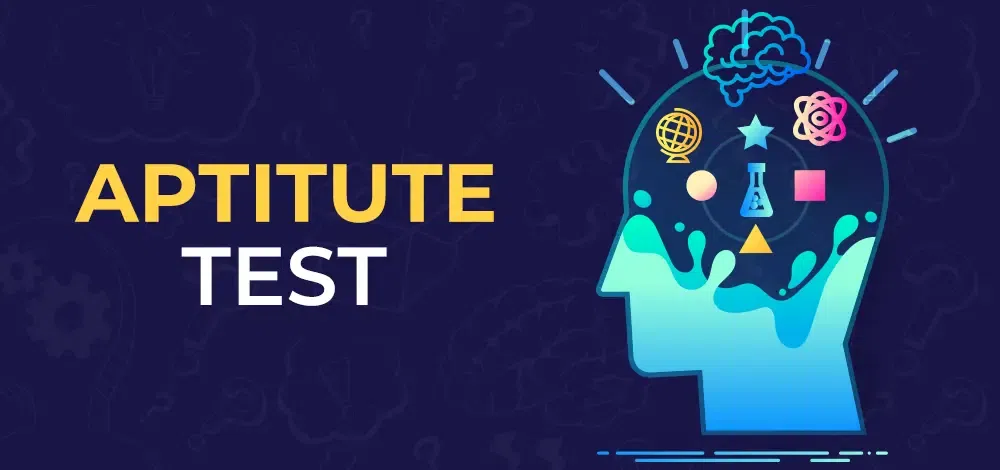Unlock the secrets to effective talent assessment! Explore the core components of aptitude, DISC, and personality tests for informed hiring decisions.
In today’s competitive job market, finding the right candidates who not only possess the necessary skills but also fit well within your organization’s culture is paramount. This is where aptitude assessments, along with related tools like DISC assessments and personality tests, come into play.
But what exactly are aptitude assessments, and why are they so crucial in the hiring process? In simple terms, aptitude assessments are tools used to measure an individual’s natural abilities, cognitive skills, and potential for success in specific roles. They provide valuable insights into a candidate’s problem-solving abilities, critical thinking skills, and overall aptitude for the job at hand.
However, aptitude assessments are just one piece of the puzzle. DISC assessments delve into understanding an individual’s behavioral preferences, while personality tests offer insights into their character traits and interpersonal dynamics. Together, these assessments provide a holistic view of a candidate’s capabilities, strengths, and potential areas for development.
Understanding Aptitude Assessments
Aptitude assessments serve as invaluable tools in the hiring process, offering a glimpse into candidates’ innate abilities and suitability for specific roles. At their core, these assessments are designed to measure cognitive skills, problem-solving capabilities, and other key attributes essential for success in various positions.
One of the fundamental components of effective aptitude assessments lies in their clarity and relevance. Clear instructions and well-defined content ensure that candidates understand what is expected of them and can respond accurately. Whether it’s numerical reasoning, verbal comprehension, or abstract reasoning, each component of the assessment should directly align with the job requirements, providing a true reflection of the candidate’s potential to excel in the role.
Moreover, the content of aptitude assessments should be carefully curated to encompass a wide range of skills and abilities relevant to the job at hand. This ensures a comprehensive evaluation of candidates’ capabilities and helps identify individuals who possess the necessary competencies to thrive in the role.
Designing Aptitude Assessments
When it comes to designing aptitude assessments, clarity and relevance are paramount. Clear instructions and well-defined content ensure that candidates understand what is expected of them and can respond accurately. Each component of the assessment, whether it’s numerical reasoning, verbal comprehension, or abstract reasoning, should directly align with the job requirements, providing a true reflection of the candidate’s potential to excel in the role.
Moreover, the content of aptitude assessments should be carefully curated to encompass a wide range of skills and abilities relevant to the job at hand. This ensures a comprehensive evaluation of candidates’ capabilities and helps identify individuals who possess the necessary competencies to thrive in the role.
Customization and Tailoring
Customization is key when it comes to the aptitude assessment, as one size does not fit all in the realm of talent evaluation. Employers must tailor assessments to align with specific job roles and organizational needs, ensuring that the content and format accurately reflect the demands of the position.
By customizing assessments, employers can better assess candidates’ suitability for the role and identify individuals who possess the precise skills and qualities required to excel. This tailored approach not only enhances the accuracy of candidate evaluations but also streamlines the hiring process by focusing on the most relevant criteria.
Validating Assessments
Validating aptitude assessments is essential to ensure that they accurately measure what they intend to assess. This involves rigorous testing and validation processes to confirm the reliability and validity of the assessments.
Validity refers to whether the assessment measures what it claims to measure. For aptitude assessments, this means ensuring that the test accurately evaluates the cognitive skills and abilities relevant to the job role. Different types of validity, such as content validity, criterion validity, and construct validity, are assessed to ensure the assessment’s accuracy.
Reliability, on the other hand, refers to the consistency of the assessment results over time and across different administrations. Employers need to ensure that the assessment produces consistent results for candidates who possess similar skills and abilities.
By validating aptitude assessments, employers can have confidence in the results and use them effectively to inform hiring decisions. This validation process also helps organizations comply with industry standards and regulations, ensuring fairness and accuracy in the selection process.
Integrating Results into Hiring Decisions
Once aptitude assessments, DISC assessments, and personality tests have been administered, the challenge lies in effectively interpreting and integrating the results into hiring decisions. This requires a thoughtful approach that considers both the quantitative data provided by the assessments and qualitative insights gathered throughout the recruitment process.
First and foremost, it’s essential to analyze assessment results in conjunction with other aspects of the candidate’s profile, such as their resume, interview performance, and references. This holistic view helps paint a comprehensive picture of the candidate’s capabilities and suitability for the role.
Additionally, employers should be mindful of potential biases when interpreting assessment results. While assessments provide valuable insights, they should not be the sole determinant of a candidate’s candidacy. Instead, results should be used to supplement other information and inform decision-making in a balanced manner.
Furthermore, involving multiple stakeholders in the decision-making process can provide diverse perspectives and enhance the validity of the final hiring decision. Collaboration between hiring managers, HR professionals, and other relevant team members ensures that decisions are well-informed and aligned with organizational goals.
Continuous Improvement and Evaluation
Continuous improvement and evaluation are essential aspects of maintaining the effectiveness of aptitude assessments, DISC assessments, and personality tests over time. As job roles evolve and organizational needs change, it’s crucial to regularly review and refine assessment processes to ensure they remain aligned with current requirements.
One way to facilitate continuous improvement is by soliciting feedback from both candidates and internal stakeholders. Gathering input on the clarity, relevance, and fairness of assessments helps identify areas for enhancement and ensures that assessments remain reflective of the organization’s values and goals.
Moreover, conducting regular evaluations of assessment results allows employers to identify trends and patterns that may indicate areas for improvement in recruitment and selection processes. This data-driven approach enables organizations to refine assessment criteria, adjust scoring methodologies, and implement other enhancements to optimize the effectiveness of assessments.
Conclusion
In conclusion, effective aptitude assessment, DISC assessment, and personality test play a vital role in the modern hiring landscape, offering valuable insights into candidates’ abilities, behaviors, and personality traits. By understanding the key components of these assessments and leveraging them thoughtfully in the recruitment process, employers can make informed hiring decisions that align with organizational goals and foster a culture of excellence.
From ensuring clarity and relevance in assessment design to prioritizing fairness and inclusivity, each aspect of assessment administration requires careful consideration to maximize effectiveness. By continuously evaluating and refining assessment processes, organizations can adapt to evolving needs and maintain the integrity of their talent evaluation practices.




